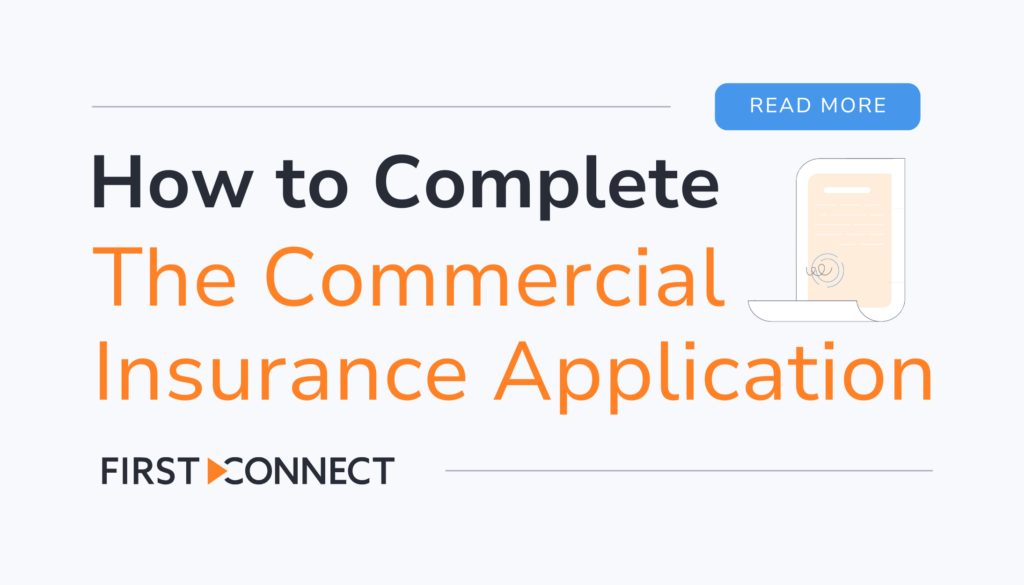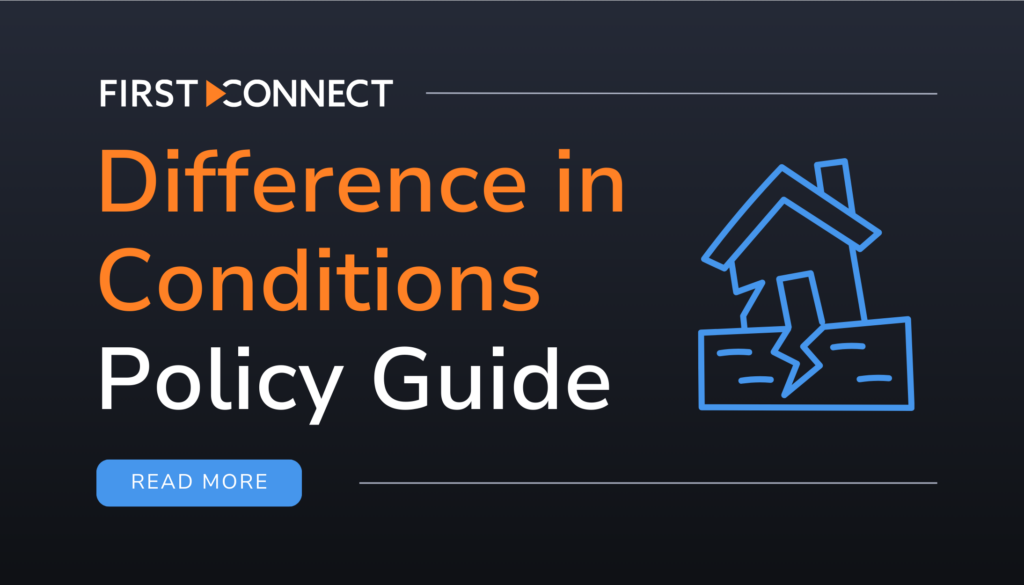How Using AI for Insurance Agents Is Changing the Game
When John, a veteran insurance agent, lost a long-time client to a faster-responding competitor, he realized the game had changed. Manual follow-ups, spreadsheet reminders, and lagging quote responses no longer cut it. Clients expect real-time service, personalized experiences, and fast claims processing.
Enter AI for insurance agents.
Artificial intelligence isn’t just a buzzword, it’s a business-critical solution reshaping how agents engage, quote, manage, and serve clients. From personalized chatbots to automated claims management, generative AI is fundamentally altering how modern agencies function. The shift isn’t just about speed, it’s about smarter decision-making and stronger client relationships.
Given the rising demand for seamless client interactions and streamlined operations, First Connect Insurance provides insights into AI’s potential for insurance agents, featuring practical examples of AI tools transforming industry efficiency.
- AI helps insurance agents automate quotes, claims, and follow-ups to enhance efficiency and reduce manual work.
- Chatbots and virtual assistants can improve customer satisfaction through instant support and policy guidance.
- Tools like ChatGPT and agency-focused AI platforms are affordable, easy to integrate, and scalable.
- AI solutions for insurance improve compliance, risk management, and marketing.
- Implementation support, cost-effective entry, and hands-on training ease the transition for agents of all sizes.
Independent Agent?
Accelerate Your Agency’s Success
Understanding the pain points of insurance agents
Insurance agents juggle a complex array of responsibilities, from quoting and managing claims to servicing clients and handling regulatory paperwork. As client expectations evolve, the pressure on agents continues to mount. The most common challenges faced by agents include:
- Slow response times: Delays in issuing quotes or responding to inquiries can cost agents valuable business.
- Data overload: With information pouring in from multiple carriers, CRM systems, and client touchpoints, agents often struggle to make sense of it all.
- Limited resources: Many independent or small-agency agents lack the budget or staff to scale their operations effectively.
- Compliance concerns: The insurance industry is heavily regulated, and staying current with licensing, disclosures, and documentation is time-consuming.
- Technology intimidation: Not all agents are tech-savvy. The idea of setting up AI tools or managing automation can feel overwhelming.
These hurdles make efficiency and client satisfaction difficult to achieve with traditional methods. But AI offers scalable, easy-to-integrate solutions tailored to the insurance industry. AI enables agents to address each of these pain points with targeted, automated solutions that are adaptable to various agency sizes and specialties.
How AI is transforming the insurance industry
AI is not about replacing the human agent, it’s about empowering them to do more with less. In the insurance industry, AI simplifies workflows, enhances decision-making, and elevates the customer experience by shifting the focus from administrative tasks to relationship-building.
- Automation of quoting and claims: AI bots can auto-generate quotes, validate policyholder data, and process claims in minutes instead of days. For example, AI underwriting assistants can scan historical client data to assess risk profiles instantly.
- Predictive analytics: AI helps identify high-risk clients, detect policy churn patterns, and uncover cross-sell opportunities. Predictive models enable agents to proactively reach out to clients who are more likely to lapse or need coverage changes.
- Natural language processing (NLP): NLP powers conversational AI such as chatbots, enabling real-time engagement. Clients can inquire about coverage, request documents, or file claims anytime, without waiting for a live agent.
- Workflow optimization: AI categorizes incoming emails, flags urgent client issues, and routes inquiries to the appropriate department, cutting down time spent sorting or triaging tasks.
- Fraud detection and prevention: AI can detect anomalies in claims data that might indicate fraudulent activity, allowing agents and carriers to respond quickly.
According to a report, AI can reduce claims processing time by up to 70% and cut handling costs by 30%. In practice, this translates to greater agent bandwidth, happier clients, and healthier bottom lines.
Top AI tools for insurance agents
Here are First Connect’s top-performing AI solutions tailored for insurance agents, each offering unique features to support different aspects of the client lifecycle:
ChatGPT for insurance agents
ChatGPT is a conversational AI developed by OpenAI that agents can use to enhance communication with clients across multiple channels. It can draft emails, respond to inquiries, and even create personalized content for marketing or onboarding, all through natural language understanding.
Pros
- Natural, conversational support for client inquiries across email, SMS, and chat.
- Can draft email replies, generate quotes, explain complex policy language, and even assist with marketing content.
- Available 24/7, improving response times and consistency.
Cons
- May require API setup or third-party integration platforms like Zapier or Make.
- Needs prompt tuning or supervision to ensure output accuracy in regulated contexts.
AgentSync
AgentSync is a compliance automation platform designed specifically for the insurance industry. It simplifies and automates the process of maintaining up-to-date producer licensing, appointments, and regulatory filings across multiple jurisdictions.
Pros
- Automates licensing, appointments, and compliance tasks across multiple states and carriers.
- Ensures agents stay compliant with changing regulatory requirements.
- Integrates with Salesforce and other CRMs.
Cons
- Higher costs may be more suitable for larger agencies or managing general agents (MGAs).
- Customization options can take time to implement fully.
Glia
Glia is a customer engagement platform that enables digital communication between insurance agents and clients via chat, voice, and video. It offers AI-powered assistants and co-browsing tools to enhance support and reduce client friction during online interactions.
Pros
- Offers digital-first support via AI chat and voice bots that can handle tier-1 client queries.
- Enhances engagement through co-browsing and live guidance tools.
- Helps reduce wait times and abandonment rates.
Cons
- Better suited for agencies with a strong digital infrastructure.
- May require training to use advanced tools effectively.
Insurify AI
Insurify AI is a quote comparison platform that leverages artificial intelligence to generate side-by-side insurance quotes for personal lines such as auto and home. It helps agents streamline the quoting process and increase lead conversion through intelligent automation.
Pros
- Leverages AI algorithms to generate side-by-side insurance quotes for auto, home, and renters’ insurance.
- Ideal for capturing online leads and simplifying quoting.
- Useful in digital marketing campaigns to capture user attention.
Cons
- Coverage depends on carrier participation in the marketplace.
- Less customizable for agents wanting tailored client journeys.
Tarmika
Tarmika is a commercial lines quoting solution designed to connect independent agents with multiple carriers through a single-entry interface. It automates the quoting process for small and medium business policies, significantly reducing the time spent on data entry.
Pros
- Designed for commercial lines quoting, pulling data from multiple carriers in real time.
- Helps agents write more commercial policies efficiently.
- Streamlines quoting for small and mid-size businesses.
Cons
- Primarily focused on commercial insurance.
- Setup and carrier integrations may require onboarding assistance.
Addressing common agent concerns with AI implementation
Despite the clear benefits, many agents are wary of AI. A report revealed that 34% of participants found AI adoption to be highly challenging, while 65% considered it somewhat challenging.
Concerns about complexity, cost, disruption, and data security can stand in the way of adoption. First Connect understands these pain points and has built a supportive path for agents to explore AI safely.
- Onboarding support: Agents receive customized walkthroughs for AI tools, reducing the learning curve.
- Training resources: Webinars, video demos, live workshops, and a dedicated support team help agents learn at their own pace.
- Cost transparency: First Connect offers cost-effective packages designed for agencies of all sizes, removing pricing uncertainty.
- Integration help: Tech specialists work with agents to integrate AI solutions with current systems, whether it’s a legacy CRM or a modern policy management platform.
- Compliance oversight: Advisors help ensure all AI usage aligns with regulatory standards and avoids data misuse.
[Insert testimonial]
With the right support, even the most tech-hesitant agent can implement AI and see measurable benefits.
Ready For Takeoff?
Get Free Carrier Access & Skyrocket Your Agency
Tips on ensuring compliance and integration with AI
As agents explore AI, compliance must remain at the top of their minds. Regulatory oversight in the insurance sector is non-negotiable, and integrating AI into daily workflows must not jeopardize data security or compliance standing. Here are steps to keep your AI implementation safe and sound:
- Choose tools designed for the insurance industry: These platforms are more likely to be pre-configured to meet state and federal regulations.
- Verify data security protocols: Select tools with encryption, audit trails, and permission controls to protect sensitive client information.
- Use explainable AI: Opt for platforms that provide insight into how decisions are made by AI, especially when underwriting or pricing policies.
- Document every AI-related process: Maintain clear records of how AI tools are used, what decisions they influence, and how clients are notified.
- Schedule regular compliance reviews: Work with compliance officers to ensure AI systems are regularly reviewed and updated in line with evolving regulations.
Final thoughts
The use of AI for insurance agents is no longer optional, it’s a competitive necessity. As client expectations shift toward instant responses, transparent pricing, and personalized experiences, AI provides a foundation for agents to deliver on these demands while protecting their time and sanity.
From chatbots for insurance agents and agencies that streamline client interactions to predictive analytics that help agents make smarter policy recommendations, AI gives agencies the edge they need to grow. And with a trusted partner like First Connect, agents don’t have to navigate this transformation alone.
Whether you’re just starting to explore AI solutions for insurance or ready to fully automate workflows, First Connect offers end-to-end support to help you thrive.
FAQ
-
Will AI replace insurance agents?
No, AI will not replace insurance agents. Instead, AI enhances their capabilities by automating routine tasks and providing data-driven insights, freeing agents to focus on high-value client interactions. Human judgment, empathy, and trust remain irreplaceable in the client-agent relationship.
-
How is AI used in insurance pricing?
AI in insurance pricing analyzes vast amounts of historical claims data and client behavior to suggest optimal pricing models based on risk, demographics, and trends. Machine learning models continuously adjust pricing algorithms based on real-time data inputs, helping carriers and agents offer more competitive rates.
-
How many insurance companies are using AI?
Over 43% of insurance companies globally use AI in some capacity, including underwriting, fraud detection, customer support, marketing automation, and dynamic pricing. This number is expected to grow as more carriers adopt digital-first strategies.
-
How is AI disrupting the insurance industry?
AI is transforming the insurance industry by improving efficiency, enabling real-time client support, enhancing underwriting precision, and reducing fraud through intelligent pattern recognition. It also supports new product development and dynamic pricing strategies, ultimately reshaping how coverage is bought, sold, and serviced. In fact, according to the National Insurance Advisory Council (NIAC), 54% of insurance companies currently utilize artificial intelligence to support pricing strategies.
-
How much do insurance agents pay for chatbots?
Costs vary, but most chatbots for insurance agents charge for basic packages to advanced tools with CRM and data integrations. Some platforms offer free trials or pay-as-you-grow models. First Connect helps agents evaluate options and identify the best insurance bots for their specific budget and goals.



